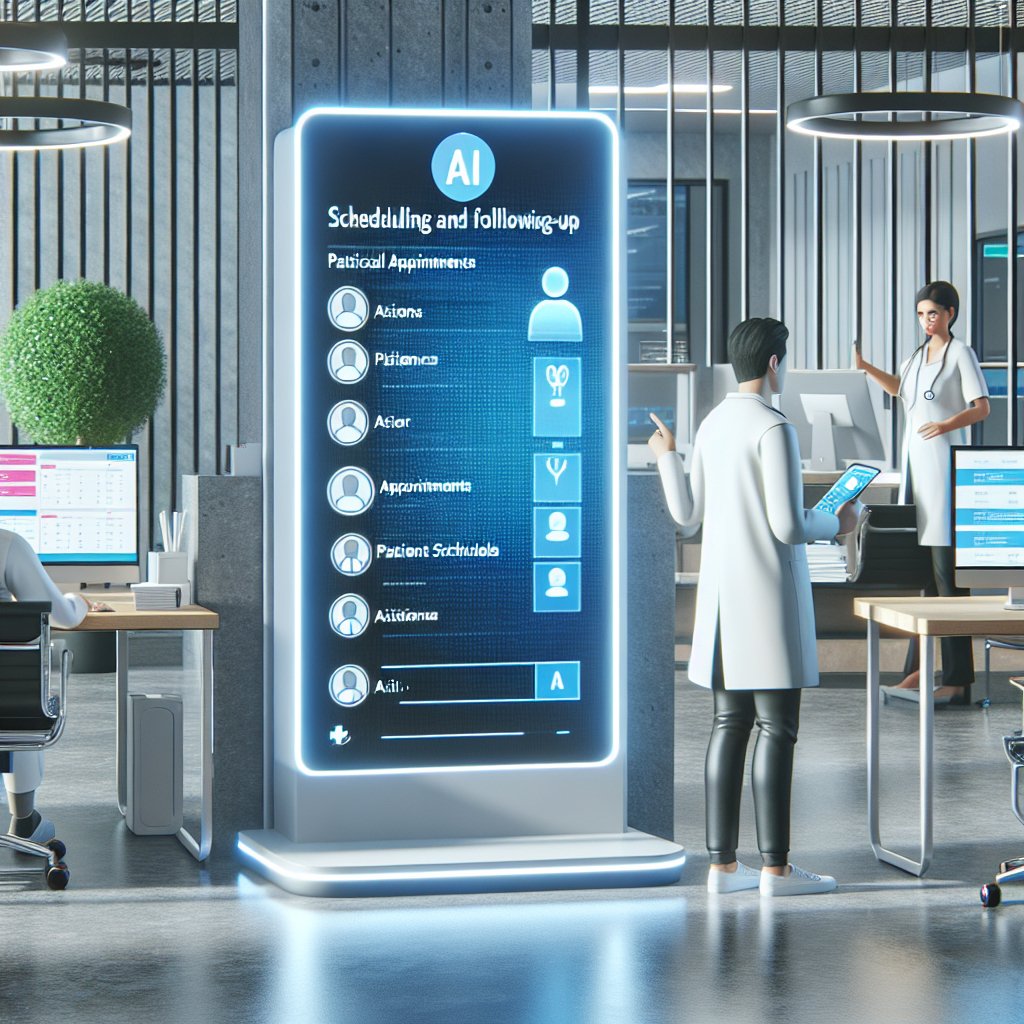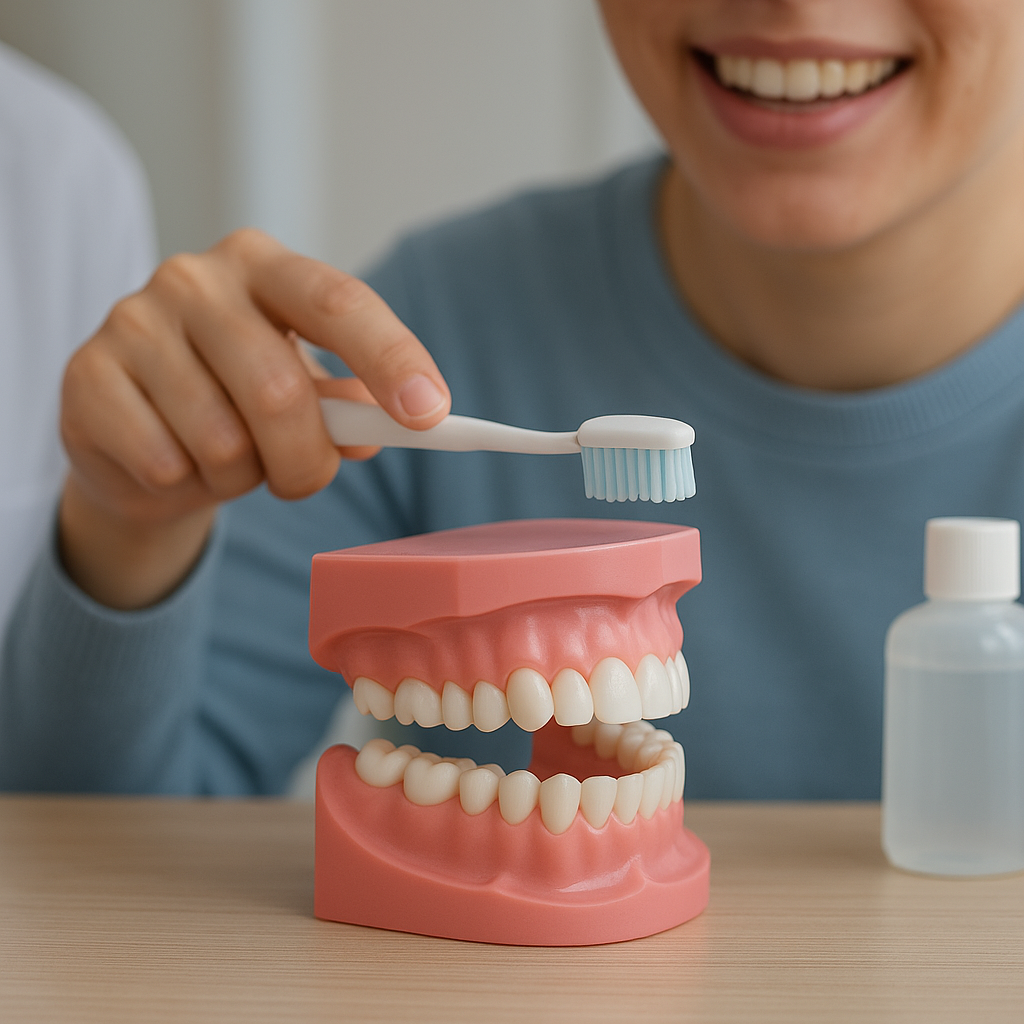The integration of artificial intelligence (AI) into various sectors has revolutionized the way services are delivered, and dentistry is no exception. The growing use of AI in patient scheduling and follow-ups is transforming the patient experience, enhancing operational efficiency, and improving overall dental care. This article explores the implications of AI in dental practices, focusing on its impact on scheduling appointments and managing patient follow-ups.
AI in Patient Scheduling
Efficient patient scheduling is crucial for any dental practice. Traditional methods often involve manual entry, which can lead to errors, double bookings, and inefficient use of time. AI-driven scheduling systems are designed to streamline this process, offering numerous advantages.
Automated Appointment Booking
One of the most significant benefits of AI in patient scheduling is the automation of appointment booking. AI systems can analyze patient data, preferences, and availability to suggest optimal appointment times. This not only reduces the workload for dental staff but also enhances the patient experience by providing quick and convenient booking options.
- 24/7 Availability: AI scheduling systems can operate around the clock, allowing patients to book appointments at their convenience, even outside of regular office hours.
- Reduced No-Shows: By sending automated reminders via text or email, AI can significantly decrease the number of missed appointments, ensuring that dental practices maintain a steady flow of patients.
- Personalized Scheduling: AI can learn from patient behavior and preferences, offering tailored scheduling options that cater to individual needs.
Optimizing Staff Efficiency
AI scheduling tools not only benefit patients but also optimize the workflow of dental staff. By automating routine tasks, dental professionals can focus more on patient care rather than administrative duties. This leads to improved job satisfaction and better patient outcomes.
- Resource Allocation: AI can analyze patient flow and staff availability, helping practices allocate resources more effectively and reduce wait times.
- Data-Driven Insights: AI systems can provide valuable insights into scheduling patterns, enabling practices to make informed decisions about staffing and operational hours.
AI in Patient Follow-Ups
Follow-up care is an essential aspect of dentistry, ensuring that patients adhere to treatment plans and maintain their oral health. AI technologies are increasingly being utilized to enhance follow-up processes, making them more efficient and effective.
Automated Follow-Up Reminders
AI can automate follow-up reminders, ensuring that patients receive timely notifications about their treatment plans, upcoming appointments, and necessary procedures. This proactive approach helps patients stay engaged in their dental care and encourages adherence to recommended treatments.
- Customized Communication: AI systems can tailor follow-up messages based on individual patient needs, preferences, and treatment history, making communication more relevant and effective.
- Multichannel Outreach: AI can utilize various communication channels, such as SMS, email, or phone calls, to reach patients, ensuring that reminders are received in a timely manner.
Monitoring Patient Progress
AI can also play a crucial role in monitoring patient progress after treatments. By analyzing data from follow-up appointments and patient feedback, AI systems can identify trends and potential issues, allowing dental professionals to intervene early if necessary.
- Data Analysis: AI can process large volumes of patient data to identify patterns in treatment outcomes, helping dentists refine their approaches and improve patient care.
- Patient Engagement: By providing patients with easy access to their treatment progress and outcomes, AI can enhance patient engagement and satisfaction.
Challenges and Considerations
While the benefits of AI in patient scheduling and follow-ups are significant, there are also challenges and considerations that dental practices must address. Understanding these challenges is essential for successful implementation.
Data Privacy and Security
As with any technology that handles sensitive patient information, data privacy and security are paramount. Dental practices must ensure that AI systems comply with regulations such as HIPAA (Health Insurance Portability and Accountability Act) to protect patient data.
- Encryption: Implementing robust encryption methods can help safeguard patient information from unauthorized access.
- Regular Audits: Conducting regular audits of AI systems can help identify vulnerabilities and ensure compliance with data protection regulations.
Integration with Existing Systems
Integrating AI solutions with existing practice management systems can be a complex process. Dental practices must ensure that new technologies work seamlessly with their current workflows to avoid disruptions.
- Training Staff: Providing adequate training for staff on how to use AI tools effectively is crucial for successful integration.
- Choosing the Right Technology: Dental practices should carefully evaluate AI solutions to ensure they meet their specific needs and can integrate smoothly with existing systems.
The Future of AI in Dentistry
The future of AI in dentistry looks promising, with ongoing advancements in technology and increasing acceptance among dental professionals. As AI continues to evolve, its applications in patient scheduling and follow-ups are likely to expand, offering even more innovative solutions for dental practices.
Enhanced Patient Experience
As AI technologies become more sophisticated, they will further enhance the patient experience. From personalized treatment plans to real-time communication, AI has the potential to create a more patient-centered approach to dental care.
- Telehealth Integration: The integration of AI with telehealth platforms can facilitate remote consultations and follow-ups, making dental care more accessible to patients.
- Predictive Analytics: AI can leverage predictive analytics to anticipate patient needs and recommend preventive measures, ultimately improving oral health outcomes.
Continued Research and Development
Ongoing research and development in AI technologies will likely lead to new applications in dentistry. As more data becomes available, AI systems will become increasingly adept at analyzing patient information and providing actionable insights for dental professionals.
- Collaboration with Tech Companies: Dental practices may benefit from partnerships with technology companies to develop customized AI solutions tailored to their specific needs.
- Staying Informed: Dental professionals should stay informed about the latest advancements in AI to leverage new tools and techniques that can enhance their practice.
In conclusion, the growing use of AI in patient scheduling and follow-ups is reshaping the landscape of dental care. By automating routine tasks, enhancing patient engagement, and providing valuable insights, AI technologies are helping dental practices operate more efficiently and deliver better care. As the field continues to evolve, embracing AI will be essential for dental professionals looking to stay competitive and provide the highest level of service to their patients.




